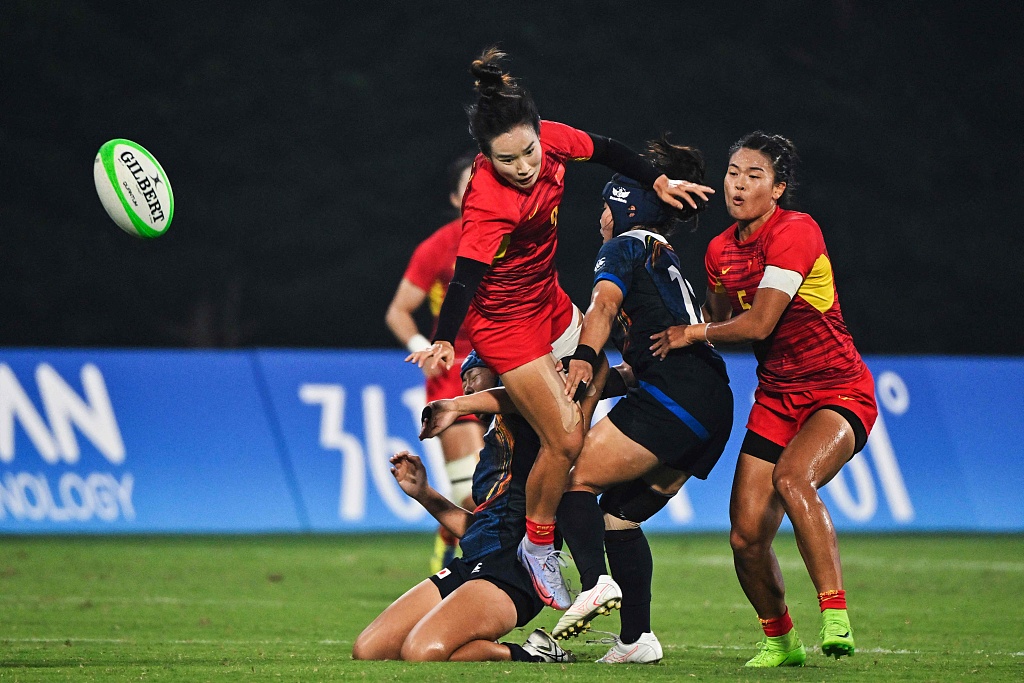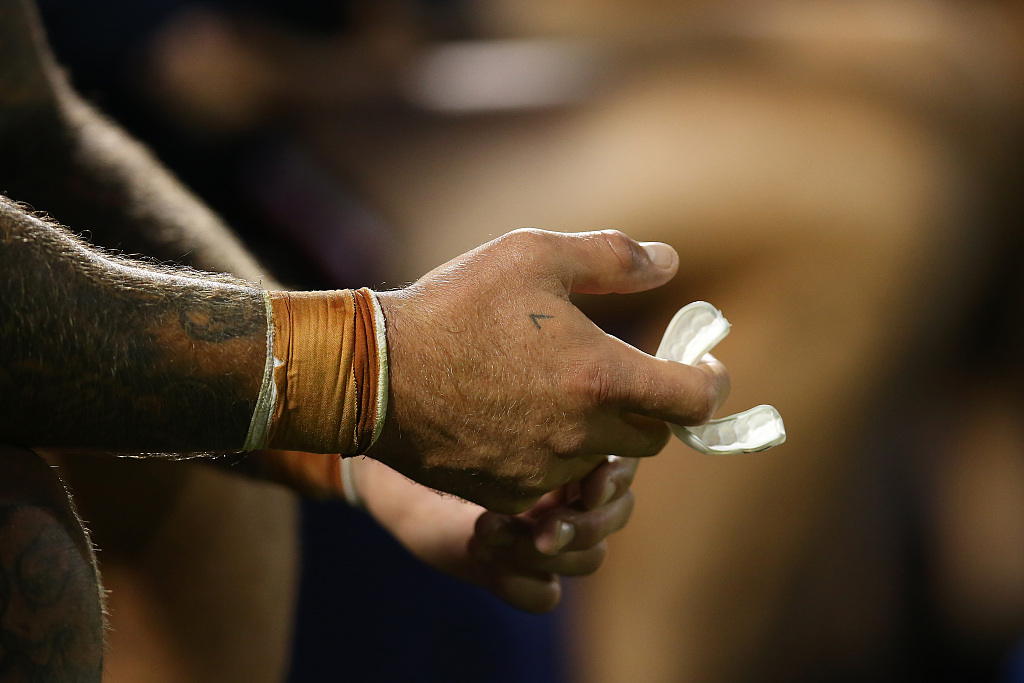
Players in action during the women's rugby sevens final at the 19th Asian Games in Hangzhou, China, September 26, 2023. /CFP
Players in action during the women's rugby sevens final at the 19th Asian Games in Hangzhou, China, September 26, 2023. /CFP
Rugby authorities will start using "smart" mouthguards to help protect players from head injuries, the sport's global governing body said on Monday.
World Rugby will use the smart mouthguard technology to alert independent pitch-side doctors about potential concussions.
The data supplied would then be used by the doctors when performing the head injury assessments that determine whether or not a player who has suffered a suspected concussion can return to the field of play.
The in-game alerts sent by the mouthguards to the doctors would show whether a player had "experienced a high level of acceleration which could lead to an injury," World Rugby said in a statement.
"The latest scientific research and expert opinion is telling us one thing: reduce the forces players experience on their heads at all levels of the game," said World Rugby's chief medical officer Dr Eanna Falvey.
"The advances in smart mouthguard technology mean elite players will be better cared for than ever before."

A view of a mouthguard owned by Jake Friend of the Sydney Roosters during the Australian National Rugby League match between the Sydney Roosters and the Manly Sea Eagles in Sydney, Australia, March 21, 2023. /CFP
A view of a mouthguard owned by Jake Friend of the Sydney Roosters during the Australian National Rugby League match between the Sydney Roosters and the Manly Sea Eagles in Sydney, Australia, March 21, 2023. /CFP
World Rugby said it is investing two million euros ($2.1 million) in the technology, which will make its debut in the upcoming elite women's rugby competition in New Zealand, starting later this month.
Elite players will be required to wear smart mouthguards in training as well as matches.
The governing body is also recommending mouthguard use at all levels of the game across the world and increasing return-to-play protocols to three weeks.
A group of more than 200 former rugby players, mostly professionals, have launched a claim against World Rugby and the governing bodies of England and Wales.
They allege that the governing bodies failed to take reasonable steps to protect players from potential brain injuries caused by repetitive blows.
Steve Thompson, a World Cup winner with England in 2003, is among the former players to have brought the case.
Thompson has previously spoken publicly about conditions he developed following his rugby career.
Source(s): AFP